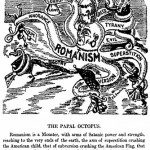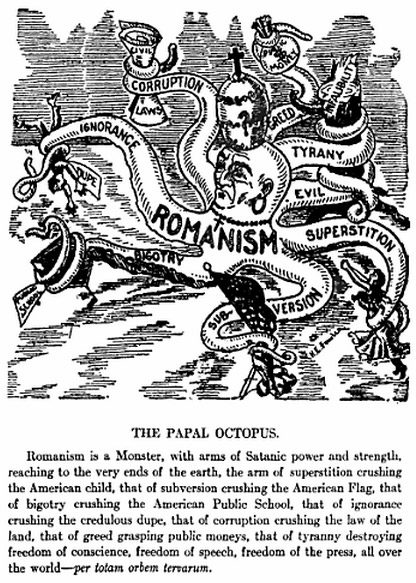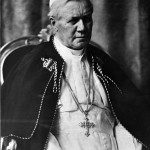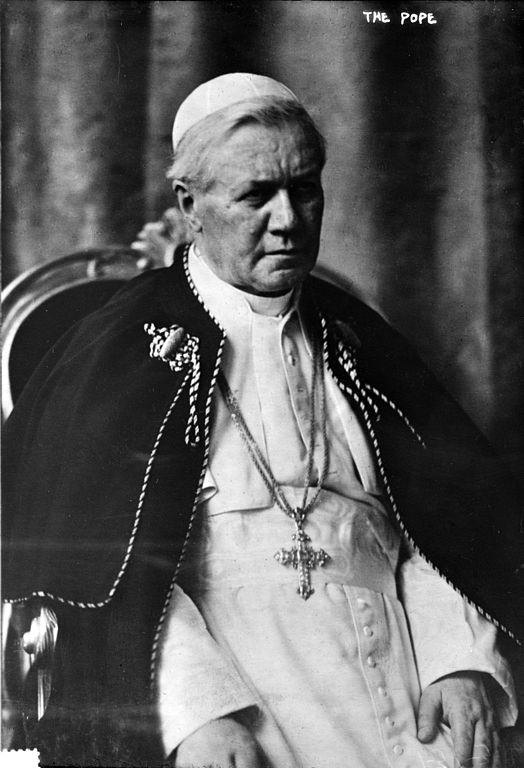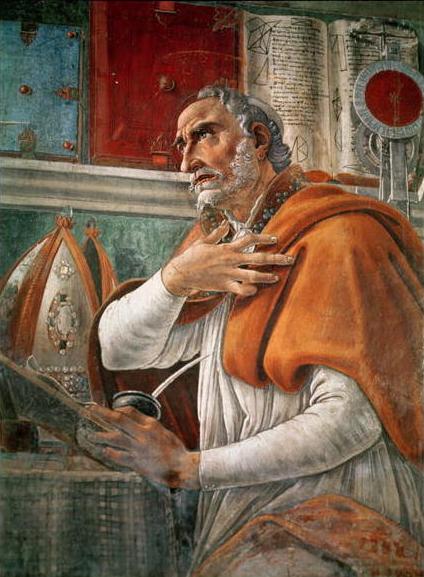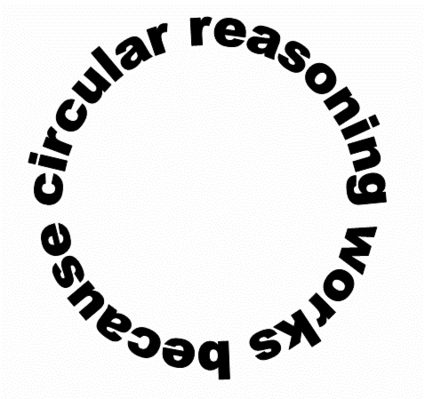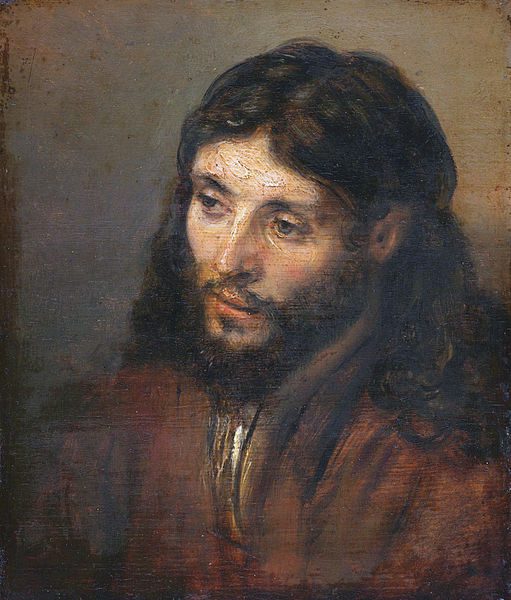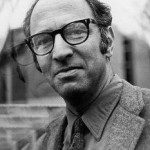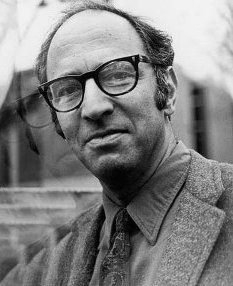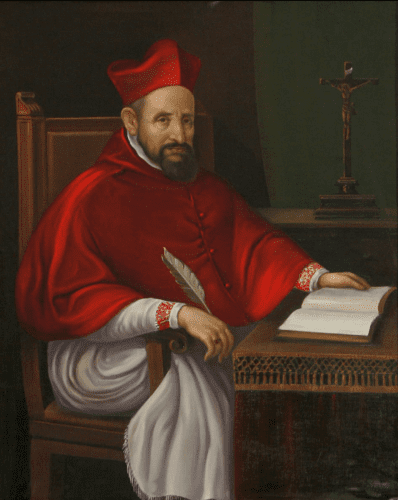Original Title: Dialogue with an Atheist on the Galileo Fiasco and its Relation to Catholic Infallibility (vs. Jon Curry)
St. Robert Bellarmine (1542-1621); 16th. c. anonymous Italian painter [public domain /
Wikimedia Commons]
(8-11-10)
This exchange occurred in the combox (beginning with Jon’s first comment) for the related paper, “No One’s Perfect”: Scientific Errors of Galileo and 16th-17th Century Cosmologies Rescued From Obscurity. I felt that eventually the dialogue broke down into dialogue-killing wrangling about style, methodology, and minutiae, and so will omit those latter portions of the discussion from this new paper, to save readers from all that tedium. Anyone can read the whole thing in the combox if they wish. I’m not gonna change anything there. It is what it is. But editing is highly important in all good writing.
Jon, at length, ended it by stating, “we’re just not able to communicate.” That indeed seems to be the case, seeing how the debate ended up (spinning wheels in the mud, so to speak; both parties talking past each other). For my part, I freely and repeatedly admitted (after Jon complained) that I did go a bit overboard:
. . . one can always be more charitable, sure; of course. I am passionate about argument, I love it, and so I can get carried away at times. Some of it comes from frustration, if I feel I am repeating myself and it’s not getting through. But I am always disagreeing with arguments without trying to insult people. Sometimes the line can be fine, granted. And people have different sensitivities.
But I’m a “bulldog” in argument; there is no doubt about that. This offends some people. Different strokes for different folks. It may offend you. But I will basically be the way I am. I can’t somehow not be passionate about ideas. It’s just how I am. You have met me in person so I think you understand this at least to some degree. I have to be accepted for who I am, just as I try to do the same with you and everyone else. So I plead guilty as charged to excessive polemics and rhetoric . . . (8-6-10)
I’ve admitted polemical excess. I’m not perfect. Never claimed to be. My points about the actual arguments back and forth still stand, regardless of how poorly I may have conducted myself, in your eyes. Like you say, there are facts in play here that need to be dealt with. (8-6-10)
I am happy to take my share of the blame. If I had any idea we’d be in this present rut I would have tried my utmost to temper my usual enthusiastic passion for debate and used less strong language (that seems to have set you off down this path). (8-6-10)
But my genuine love of ideas and debate and aggressive style and sometimes over-the-top rhetoric or polemics are by no means the entire reason why it ended as it did. There are logical and linguistic and historical issues in play, too. I exasperated Jon but (from where I sit) he also frustrated me to no end by not dealing with all of my arguments and at the end deciding to talk subjectively about the discussion and stylistic issues rather than about Galileo and the substantive theological and philosophical matters. I stated: “I thought the dialogue started out well, and I was enjoying it back when we were actually discussing the issue” and referred to “the initial fun and stimulation of this dialogue.” Readers may judge. I present the dialogue, as always (i.e., minus the drudgery at the end), for the purpose of allowing open-minded thinkers to read both sides of a dispute and make up their own minds where the actual truth lies.
Jon’s words will be in blue.
* * * * *
I don’t see the relevance of showing that Galileo and others made mistakes. What do you expect of 17th century scientists? None of this absolves Rome though. I have a brief description of the relevant facts, often obscured by RC apologists, at the following link.
I’ll take a look at your paper as soon as I can set aside a chunk of time. Thanks for alerting me to it.
The point is not merely to note that scientists make mistakes (a thing anyone with a lick of sense knows) — as if that is some big revelation [no pun intended] –, but rather, that Christians are not the only ones who make mistakes (specifically with the Galileo incident in mind) and that there are many aspects to the Galileo affair that many are unaware of.
In other words, this is an exercise of pointing out double standards of presentation, by presenting (fairly) certain facts of history. Catholics got some things wrong in 17th century cosmology? So did everyone else, etc. So why are we always discussed, and all this other stuff ignored and unknown?
That is my point, that I already expressed in the paper, so that there shouldn’t be any mystery here as to what I think I am accomplishing by this post.
[from his linked paper] in this instance the church opposed demonstrable science because of their understanding of the Bible. This is an excellent example of some of the problems with religious thinking.
There’s nothing in this paper that I haven’t already dealt with in my several papers on Galileo.
To generalize from one instance where mistakes were made, to “religious thinking” is absurd. So one (non-infallible, non-magisterial) Catholic tribunal got it wrong. Why should it be such a big deal? Someone noted that this actually proves the fact that the Church is not opposed to science [originally, erroneously, “argument”]: since Galileo is the one “stock argument” trotted out ad nauseum (just as Popes Honorius, Vigilius, and Liberius are always trotted out to supposedly disprove papal infallibility).
Jon wouldn’t argue that Communism, Stalinism, Maoism, Naziism, eugenics, phrenology, astrology, alchemy, sterilization of black men, Piltdown and Nebraska Man, etc., were all indicative of “problems with atheist thinking” [so] that he has to waste time defending atheists against these charges, as if such a broad generalization can be made in the first place . . .
The overall historical picture has to be taken into account. It is for this reason that I am currently at work on my big project of “Christianity and Science”: to smash the prevalent myths, caricatures, half truths, outright lies and propaganda (Hitchens, Dawkins et al), and straw men.
[replying to a separate comment from someone else] And, as Thomas Kuhn and others have stated, St. Robert Bellarmine actually had the more sophisticated, “modern” conception of what scientific theory and hypothesis are: not dogmas, but provisional, and never absolutely proven. Hence, Newton could be overthrown by Einstein and Planck and Heisenberg, etc. Bellarmine didn’t consider heliocentrism proven beyond all doubt, and in that respect he was right. It was not solidly established, based on experiment, till the early 1800s. But ol’ Galileo thought it was, based on his erroneous view of tides.
In essence, then, it is a case where one non-magisterial tribunal of the Church was wrong about astronomy for (partially) the right reasons, and Galileo was partially right about astronomy for (partially) the wrong reasons.
We openly admit the mistakes we made, whereas the ones who want to keep throwing Galileo in our faces don’t seem willing to consider the larger picture and aspects where Galileo got it wrong (beyond just an arrogant attitude: to actual scientific facts).
So it is a double standard in the initial judgment, and a double standard in who is willing to honestly admit what real mistakes were made (as opposed to mythical fictions and legends that supposedly occurred).
The reason it’s a big deal is this. The RCC claims to be God’s representation on earth.
Oh my; this [i.e., his entire comment of the next several paragraphs] is a goldmine of logical fallacy and muddleheaded thinking. Here we go! So far so good; though we don’t make Christianity or saving faith exclusive to our ranks.
Failing to be subservient to that authority was done on pain of imprisonment (in Galileo’s case house arrest) or death.
Infallibility and the obedience of professed Catholics to the Church are two different things. The Church had the right and prerogative to penalize someone who wanted to, in effect, speak for the Church and impose dogmas onto the Church that were not yet proven even in scientific terms.
“Death” is merely a melodramatic flourish and can therefore be dismissed as a non sequitur.
I don’t understand what you are saying. A non-sequitur is a claim that the conclusion does not follow from the premises. What are the premises and what is the conclusion I’m drawing that doesn’t follow?
* * *
As I said in response a non-sequitur is a particular thing, and I want you to show how it applies to my claim. Don’t just make assertions of the commission of fallacies. Do the work and show what is a fallacy.
Galileo’s mild treatment after his house arrest (living in luxurious palaces, etc., and not prevented to do any of his scientific experiments) shows that the death penalty was hardly in play. So I have already answered by documenting that [elsewhere in the dialogue]. Therefore, to throw out the likelihood of his being executed is indeed a non sequitur. It was a melodramatic flourish rather than a serious argument based on the events of the time. That one word of yours contained a whole world of hostile, polemical assumptions and contra-Catholic stereotypes. And it is by no means the only instance of that in your arguments.
You did not even attempt to justify your charge of non-sequitur, though the assertions that I’m guilty of fallacies remain.
Now I have. You’ll simply disagree, so what was accomplished?
Just looking at this exchange, can you understand the difficulty I’m having responding to what you say? Your first reply is a vague claim regarding a fallacy. How am I supposed to reply to that? Where is the fallacy? Is Dave3 giving the answer? The death penalty wasn’t in play in Galileo’s case? Isn’t that exactly what I initially said? The fact is I put that statement in parenthesis in hopes of preventing you from going down a rabbit trail as if I was suggesting that the death penalty was in play in this specific instance. It didn’t even matter. You still attribute that view to me and accuse me of a fallacy to boot. . . .
And by the way an error in fact is not a fallacy. This is another problem that is exacerbating the communication barrier here. Your charge against me is a charge of a fallacy, but based on Dave3 it sounds like you’re accusing me of an error (I think?). That’s not the same thing as a fallacy. Take a look at the exchange here. A charge of non sequitur is a charge that I’ve made an argument that draws a conclusion that doesn’t follow from the premises. That’s a pretty basic thing. So what would be helpful is if you listed the supposed premises that define my argument and then show how the conclusion violates the logical form. Or you could withdraw the charge of fallacy, which is what I think you should do.
“Death” was an exceedingly rare penalty (this is why I stated that your introducing this motif was “merely a melodramatic flourish.” I misunderstood, thinking that you were implying that it was a possibility in Galileo’s case. But even though you weren’t intending that meaning, it still qualifies, in my opinion, as a non sequitur insofar as we were talking about Galileo and the aspect of infallibility.
Secondly, you neglected throughout your complaining about this assertion of mine to recognize that there is more than one meaning for non sequitur. There is the definition of a fallacy in logic (that you used), but there is also a more common, everyday usage (I never stated I was using the strict logical definition). For example, at Dictionary.com (World English Dictionary), the first definition is:
1. a statement having little or no relevance to what preceded it
Then your more specific definition is given second:
2. logic a conclusion that does not follow from the premises
I was using it in the first sense (bringing it up had no relevance to the discussion at hand). I would argue that this is made clear by context, and especially by my later clarification. But you were stuck on that one definition and hung up on it, and so missed the point. Likewise, the Cultural Dictionary on the same page (as its only definition), states:
A thought that does not logically follow what has just been said: “We had been discussing plumbing, so her remark about astrology was a real non sequitur.”
Merriam-Webster online does exactly the same. It gives the logical definition first, then the one I used:
a statement (as a response) that does not follow logically from or is not clearly related to anything previously said
* * *
As for the house arrest, I noted the nature of it in my most recent paper on Galileo:
In 1633 Galileo was ‘incarcerated’ in the palace of one Niccolini, the ambassador to the Vatican from Tuscany, who admired Galileo. He spent five months with Archbishop Piccolomini in Siena, and then lived in comfortable environments with friends for the rest of his life (although technically under ‘house arrest’). No evidence exists to prove that he was ever subjected to torture or even discomfort until his death nine years later.
Now, that was logical. If the RCC is God’s spokesperson and God is telling you one thing and you are affirming another, then you are defying God.
No; you are defying the Church, which speaks for God on this earth; it doesn’t follow that the Church never makes mistakes, as it did here. We claim different levels of authority for different things.
The Church had authority in the way that a parent has authority over a five-year-old child. Does that mean that parents are always, absolutely right in every instance of punishment or correction? No. Does it mean, then, that they should not have authority and that the child should not obey? No.
That’s why pain is warranted. We can’t have people defying God’s statements.
I have explained it in logical, rational terms. You are the one trying to caricature what happened, according to the usual stereotypes of skeptics who have used this incident for almost four centuries to mean far more than what it actually meant.
Well, the RCC wasn’t magisterial and infallible in this instance you say. I think reasonable people can see this as excuses. I mean, imagine you hire a guide to take you on a trip and he says that his guidance is infallible. You come to a fork in the road and you go left on his advice and find yourself at a dead end. As you retrace your steps your guide says “Well, my advice to go left was only being offered in my unofficial capacity.” Or you have a doctor that claims infallible powers and he issues prescriptions that lead to the death of his patients. “But I didn’t sign my name in the special way and I didn’t use the special paper. Those were my unofficial, non-magesterial pronouncements.” Wouldn’t we call this doctor a scam artist?
This is plain silly. It’s not an excuse at all; it is simply what it is. The non-Catholic skeptic and critic doesn’t determine the nature of Catholic belief with regard to infallibility; we do that. Here is the logic of it:
Catholic Church: Our belief is that the Church possesses infallibility in carefully defined circumstances: when something that has long been widely believed and has strong support in Scripture and Tradition, in the area of faith and morals, is declared to be infallible, by a pope, or an ecumenical council in harmony with a pope.
Skeptic Caricaturist: But I say that matters of science are included within the purview of infallibility!
Catholic Church: That’s irrelevant. You don’t change the reality of what a thing is by desiring that it be something else. It’s a straw man. The first rule of any sensible dialogue is to understand the position of one’s opponent.
Skeptic Caricaturist: But that is just a lame excuse, because you are embarrassed that the Galileo incident disproved the infallibility of the Church.
Catholic Church: How can it do that, since it had nothing directly to do with either the faith or morals?
Yes it did. It had to do with the accuracy of Scripture as interpreted by the RCC. Interpretation of Scripture is a matter related to faith. It’s fine to say the RCC is infallible only on matters of faith, but there are times when faith and science coincide. Science is nothing but a method of determining truth. If the truth is related to a Scriptural matter than faith and science will be interlinked. Saying that the RCC doesn’t get necessarily get it right in such cases is simply saying that the RCC doesn’t necessarily get it right in matters that can be checked. So why should we believe the RCC in matters that can’t be checked? Jesus said that if you can’t trust me on earthly matters, why should you trust me on heavenly matters. I agree.
* * *
Skeptic Caricaturist: Well, it has to do with the doctrine of creation, which is part of the attributes of God, no?
Catholic Church: The discussion of heliocentrism vs. geocentrism (with both being wrong insofar as the earth or sun is thought to be at the center of the universe) are particular astronomical theories. Whether one or the other is true does not affect the doctrine that God created everything in the universe. But in any event, it has no bearing whatever on infallibility since the subject matter is outside of faith and morals, and the erroneous proclamations about heliocentrism were made by neither a pope nor an ecumenical council.
There’s only one distinction that makes sense with regards to infallibility. If it’s offered in an official capacity it should be regarded as infallible. If not, then no.
Again, you exhibit the same foolish fallacy:
1) Catholic Church says infallibility means X and is applied to particular situations Y and Z (the Galileo affair not being either Y or Z).
2) Jon says no; infallibility actually means, or should mean (because he says so!) A, and should be applied to the particular situation of the Galileo affair, which he says is indeed within the category of Y and Z.
3) So the Church says that the Galileo affair is not an instance of Y and Z, but Jon says it is. The two positions contradict each other.
4) So who should reasonably determine where infallibility applies or doesn’t apply?
5) We say the Church obviously determines that, because it is the entity making the claim in the first place; therefore it is sensible that it defines the parameters of its own claimed authority.
6) Jon says he knows better than the Church about its own level of authority. He says every “official” Church decree must also be infallible, because, well, because he says so . . .
What I’m doing is using induction. In order to spot a phony I use certain techniques. If the fraudulent doctor claims his infallible prescriptions are only infallible when he uses the special paper (after his patients have died) I recognize this as a shyster’s method. He could respond as you do. “But Jon says that all prescriptions are infallible despite my own declaration that it only counts on special paper.” Well, yeah, I suppose that’s what he’d say since he’s been busted. What would you say to the doctor? If you treat him differently than the RCC ask yourself why.
Etc., etc. One either sees the self-evident illogical goofiness of such a position or they do not.
If “Thou art Peter” means infallible guidance for Peter and his successors I can understand that it might not mean he’s right in every action that he does. But he has to be right when he acts in his official capacity as a representative of Christ on earth, which is exactly what occurred in the case of Galileo.
No it ain’t. The pope didn’t even sign the decree. It was not an infallible statement. It wasn’t made by a pope or an ecumenical council in line with one. It didn’t have to do with faith and morals. There was simply a mistake made about the earth going around the sun. Big wow. Galileo made other mistakes, as I have documented, and was also over-dogmatic when he shouldn’t have been, according to the parameters of proper science.
There are only going to be few cases where the erroneous nature of the claims of the faithful are so strikingly demonstrated.
I suppose so, since this Galileo incident is always bandied about, as if it proves anything. All it proves is that some folks in the Church were incorrect about geocentrism and about the supposed teaching of it in Scripture.
Today the RCC has learned the important lesson.
I think the lesson was learned that dogmatic pronouncements about science and the interpretation of Scripture are excessive, yes.
The difference is that our mistakes are discussed forever and caricatured and distorted, but mistakes of either Galileo or science in general through the centuries are glossed-over, ignored, and it is pretended that there is this huge qualitative difference between our mistake here and any of the others.
The Pope is regarded as a guide, but he doesn’t act that way. He hangs back without leading at all on various questions until a consensus emerges and then he steps forward and pronounces the consensus correct.
For once you get something (partially) right (and you intend it to be a criticism LOL). That’s exactly how infallibility works. This is why, e.g., the Immaculate Conception and infallibility of the pope was proclaimed in the 19th century, and the Assumption of Mary in the 20th. Lots of deliberation there. In the meantime, there is lots of guidance, even at a lower level of infallibility (what is called the ordinary magisterium).
This is not how a real guide acts, but is how a wise arbiter would act. Let the disputing parties fight it out until they’ve exhausted themselves and come to conclusions themselves, then step forward and pronounce who’s right.
Again, we have the ludicrous situation of you (who scarcely even comprehends infallibility and how it works in the Catholic Church) acting as if you understand it better than we do.
In a sense that’s true. In the same way you might think that you understand better the workings of the chiropractor better than the committed acolyte. I don’t mean it as a put down, but just to say that since obviously I think you’re wrong about the RCC and infallibility I view you as more prone to accept their excuses and more blind to misleading nature of their rationalizations. Sometimes the outsider does see some aspects more clearly. That’s true in any situation. Suppose someone you know has a family feud. You might be more objective in evaluating it, whereas parties to the conflict might say “What do you know about it. I’m in the middle of it. I know more.” Maybe that’s the very reason you can’t evaluate it objectively.
* * *
Disagree if you must, but please do us the courtesy of at least attempting to correctly understand what our view is. As a former anti-Catholic Protestant, you obviously have a lot of that baggage left in your views.
So take evolution. The lesson of Galileo has been learned. The Pope isn’t going to step up and tell us who’s right, as you would think might be done of Christ really intended an infallible guide on the earth to resolve controversial disputes.
Evolution has nothing directly to do with the Catholic faith. It’s like you want it both ways. You don’t want the Church to proclaim about science, cuz it ain’t her purview, yet on the other hand you do. Which is it?
I wish she would actually because it would expose the true nature of the church. Again, evolution is related to faith. Go to any Christian book store and you’ll see. Origins of humanity are a matter of faith obviously. If we descended from ape like ancestors that is obviously relevant to God’s attitude towards us.
* * *
If we proclaim and do so wrongly (even if sub-infallibly), then that is distorted and used as anti-Catholic and anti-Christian propaganda for 400 years. If we don’t, then you go after infallibility, as if that has anything to do with matters of science.
Popes have, in fact, made statements about precisely those areas where evolution might intersect with Christian theology: in Humani Generis in 1950, Pope Pius XII stated that Catholics must believe in a primal human pair, and that God creates every individual soul. Beyond that we have the perfect freedom to believe in evolution (which doesn’t disprove God’s existence in the slightest). St. Augustine and St. Thomas Aquinas both adhered to views that at the very least left open the possibility of transformationism.
He’s going to hang back until everyone’s pretty much on the same page. Maybe a few stragglers that don’t have sufficient influence. Then he’ll let us know the answer. He says nothing because he’s not really a leader and doesn’t even believe in his own infallibility.
A classic case study in relentless non sequitur . . . C’mon Jon. I know you can make a better argument than this (and I mean that as a compliment, not a put-down). You can do better. This is simply a poor, weak, fallacious argument on many levels.
How so? It’s an inductive argument. People that genuinely believe they are right and don’t make mistakes act in certain ways, and those ways seem very inconsistent, if not the opposite, of the way Popes, protected with the charism of infallibility act. Of course the Pope’s supposed gifts are slightly different, but there are still points of similarity. To evaluate how we should expect the Pope to act we can do nothing but consider analogous cases and contrast with the Pope’s behavior. That’s what I’m doing. It’s not a deductive argument, so I’m not pretending that the conclusions follow with necessity.
* * *
We are at an impasse, then, because you are denying that a=a (Catholic infallibility [i.e., our conception of what we mean by it and when it applies] is what it is). Since you have redefined Catholic notions at your whim and fancy, you’re fighting a straw man, and there is nowhere else to go with this. I can’t defend a phantom of your making. What I’m defending is the Catholic conception of infallibility.
We’re not discussing infallibility per se, but rather, whether the particular of the Galileo fiasco is related to it.
If we claimed to be infallible concerning absolutely everything, then your argument would have some force, but since we don’t, it has to be determined if the Galileo affair is within the purview of infallibility or not. It certainly is not (clearly so), yet you want it to be so badly (for polemical purposes), that you simply pretend that it is.
Even if I granted that it did indeed have to do with the faith, directly, there is still no “procedural” infallibility involved, as I have already explained, because this was not a solemn, binding decree made by a pope or by an ecumenical council in conjunction with a pope. Those are the conditions of infallibility; therefore, this situation does not fall into the category. Period. Case closed. It’s really not that complicated. It ain’t even toy rocket science. :-)
You can believe we’re merely “rationalizing” if you wish. I say you don’t understand what it is you are discussing, as indicated by the convenient, cynical redefinition of terms. This fails the most fundamental requirements of true, constructive dialogue (accurately comprehend the opponent’s view, so as to avoid straw men).
If infallibility is out of the picture, then it is merely a matter of a fallible decree by a non-infallible organ of the Catholic Church. They made a mistake. No one thought it was impossible for Catholics or even the Church to make a mistake in the first place (on the sub-infallible level). So it is much ado about nothing (i.e., in terms of ramifications for infallibility).
I think it was a serious mistake, that clearly had negative repercussions for years to come (it would be much better if it had never happened), but it has no bearing on the status of Catholic authority.
It’s one thing to assert:
1) X is erroneous because of A, B, and C.
. . . and then reject X on those grounds. But what you are doing is something different:
2) Pseudo-X (i.e., X as I arbitrarily redefine and distort it) is erroneous.
Since I don’t believe in Pseudo-X, I am under no intellectual obligation to defend it. In fact, it would literally be dishonest for me to do so, because I would be granting your false premise, and I can’t honestly do that.
Therefore, the discussion is at a dead-end until such time as you correctly understand what X (the Catholic doctrine of infallibility) is.
Nothing personal; I’m just being consistent with my own principles and belief-system and applying simple logic (primarily, a=a).
I agree that this is kind of an impasse. You are defending the doctor with the prescriptions that have caused death by saying that he didn’t use the special signature and special paper.
Again, you have misconstrued my argument. I’m not defending the decision to condemn Galileo in the slightest. I think it was wrongheaded and a serious error (though it continues to be poorly understood in its entirety).
My reply presupposes your assertion that all of this is a big deal and is somehow a knockout argument against the Catholic Church. It’s not. I’m not defending the thing itself, but rather, the cynical, erroneous conclusions drawn from it. And I am opposing double standards.
* * *
You say that you get to define what qualifies as an infallible prescription.
Every system is understood by its practitioners to be of a certain nature, yes (self-understanding and self-definition). That’s self-evident. Scientists resent outsiders coming in and telling them how to do their business. They see that as the height of presumptuousness, ignorance, and folly (and often it is: I mostly agree with them). Likewise, Catholics don’t care for outsiders coming in and claiming to understand our system and how it works when they clearly don’t, and won’t take the time to learn and get up to speed.
* * *
You can do that and logically evade the charge of error.
As I said, I’m not denying that an error was made, as I have said over and over again. I’m denying that this was a disproof of infallibility and other conclusions drawn from it that don’t follow at all.
* * *
When the decree was issued it was understood as coming from the Pope in his official capacity.
To some extent that was probably true. But that’s the distinction between authority and infallibility that I drew earlier. The former is a much larger category than the latter. They aren’t identical.
See the intro to Newton’s Principia and Galileo’s tract on the motion of comets. Kind of like patients confidently getting prescriptions filled imagining them to be infallible. Then when they aren’t the prior decrees die the death of a thousand qualifications. Is it logically possible that in fact they are right though they are acting like the phony doctor would? Sure. But the question is, is that a reasonable belief? Don’t confuse my claim with a claim that my position is conclusively demonstrated like some mathematical theorem. My claim is that this is a reasonable understanding of the facts. Can you at least understand how it looks to an outsider? Doesn’t it look like a phony doctor?
If you don’t understand the nature of Catholic ecclesiology (and some of the rationale for it, that is provided by apologetics), sure. In this respect you and the anti-Catholic Protestants you used to hang around are in almost exactly the same boat: neither will take the time to learn how Catholic ecclesiology works, and you won’t take the word of folks like myself (who defend the system as my occupation) that you don’t understand it. Because you don’t comprehend it, you can only view it as some sort of sleight-of-hand or casuistry (I love that word) in order to desperately uphold a fundamentally irrational and internally contradictory system.
You know full well when Christians are misrepresenting the thoughts and motivations of atheists. I know when Catholicism is being vastly misunderstood and caricatured.
You seem to not even comprehend the logic of the argument I am making. This suggests to me that the basis of your objection from the start is merely emotional rather than rational. You despise the Catholic system to such an extent that it is of no concern to you whether you accurately describe it, in order to shoot it down. And so you hold firm to your erroneous convictions, no matter what I say.
Unless you better understand the nature of infallibility, there is no possibility of further discussion. It’d be like trying to discuss geology with a guy who thinks the earth is flat. It can go nowhere because the starting assumption is so ludicrous and non-factual.
* * *
By your reasoning, why wasn’t Galileo a “phony” scientist when he asserted that the tides proved heliocentrism, or that astrology conveyed much truth, or that orbits were circular rather than elliptical, or that planets in orbit traveled at constant, rather than variable speeds, or that the entire universe went around the sun, that was at its center, or that comets were optical illusions, or that heliocentrism was “proven” in the early 17th century when there was as of yet no hard proof for that?
Why are there are these grand, melodramatic conclusions about the Catholic Church because of one error it made at one specific time (about cosmology and science, not theology or morals), but Galileo and other scientific whoppers that have occurred (in retrospect) get a huge pass and no criticism is directed towards those things?
Is that not Tweedle-dum and Tweedle-dee, as far as error is concerned? In fact, I would say that Galileo’s errors are more foolish, insofar as he was dogmatic from the epistemology of science, where that has no place. One expects religious bodies to be dogmatic by their very nature, because we claim to be conveying revealed truths of revelation. But dogma supposedly has no place in science (Thomas Kuhn and Stephen Jay Gould thought quite otherwise, insofar as how science is actually practiced).
It was simply erroneous for those in the Galileo tribunal to interpret the Bible as if it precluded either heliocentrism or a rotating earth. The Bible’s not a science book and it has to be interpreted according to the principles of phenomenological description and anthropomorphism and anthropopathism.
We do this ourselves, naturally, all the time, by saying “the sun rose at 5 AM” or “the stars moved across the sky.”
But I look at Galileo’s factual scientific errors and I give him a pass because he was early in the modern scientific scene. Science builds on the shoulders of past giants, and at that time there weren’t many “giants” in terms of modern scientific method. So one can excuse these things.
I go on to say that you ought to excuse the Church of that time on the very same basis, rather than going on and on about it. Logically, if you wish to do that (even on your fallacious basis), you should direct equal (if not more) ire at Galileo for his errors. You should criticize both equally, on roughly the same basis, or neither. But it is inconsistent to blast the Church and call us “phony,” etc., while giving Galileo a complete pass.
But you don’t and won’t do that because he opposed the big bad boogey man: the Church. Protestants act in much the same fashion when it comes to Luther. No matter how often he is wrong, he’s the Big Hero because he stood against Rome, the Beast (he used to be one of mine, too, so I understand that from the “inside”). So he is idealized and all his manifest faults are winked at, as of no consequence or import.
But (don’t get me wrong) I admire Luther in many ways, too, just as I do, Galileo . . .
I really don’t despise the RCC in the least. I’m very effusive in my praise of Catholic leadership in many areas, especially their vast efforts regarding human rights and what Hans Kung calls “the preferential option for the poor” emanating from Vatican II.
Okay; good. All the more reason to accurately understand our teaching on infallibility and all the more inexplicable that you don’t seem to be willing to do that, or accept any correction on it.
I do criticize what I see as immoral behavior as well, but I know that Catholicism is not all about child molestation, as some anti-theists might pretend.
Of course. That is a tiny percentage of priests: disproportionately of homosexual orientation (80% or so of the victims being young boys).
I admire much biblical teaching and regard it as morally challenging, despite some moral errors that were largely a product of the time they were written.
Good.
I’m just calling it the way that I see it with regards to infallibility.
That doesn’t dispense you from the responsibility of accurately portraying that which you critique, and defining it correctly.
Of course. My point though is that the charges that I’m drawing my conclusions because of hostility is completely false.
* * *
Nothing you’ve said is new to me. I’m well aware of the distinctions you make, how authority is not infallibility, how faith and morals are the purview as opposed to science, etc. These are actually distinctions I accept as reasonable. But I do not accept them as reasonable as applied to some specific cases.
Huh? Unless you respond to my arguments directly, I have no idea what you mean.
You confuse my unwillingness to accept the reasonableness of the applicability of these distinctions in this case with the view that I actually don’t comprehend the distinctions. Not true.
I’m happy to take you at your word. So then you make an exception in this case. But how and why would anyone do that?
I’m not making any exception. I’m applying a consistent standard. The church, via an inquisition called by the Pope, issued in it’s official capacity a ruling on a matter of faith (related to the interpretation of Scripture and position of our planet in the universe). The ruling was erroneous and so the RCC is not infallible.
Jeffrey A. Mirus, in his article, Galileo and the Magisterium: a Second Look, disabuses any fair-minded inquirer of these notions (his words in green):
[T]he sentence itself bears the signatures of seven of the ten judges; the Pope, in other words, did not officially endorse the decision (there was, of course, no reason why he should, since the Court was simply exercising its normal powers).
The decision states otherwise. It states that the earlier decision (found here) was “the declaration made by our Lord the Pope, and promulgated by the Sacred Congregation of the Index” that the Copernican view was contrary to Scripture and therefore cannot be defended or held.
You link to the 1633 decree, not the 1616 one. And I don’t find the words you cite from the 1633 decree, so you need to clarify what it is you are citing.
According to George Salmon writing in The Infallibility of the Church,
First of all, you are getting this stuff from a half-baked anti-Catholic tract. Salmon is exceedingly ignorant about Catholicism. I read his book when I was fighting against the Church, right before I converted. And I have read a book-length rebuttal of it, that blows it out of the water: The Church and Infallibility: A Reply to the Abridged “Salmon” (B.C. Butler)
He points out basic errors in Salmon such as the following:
# badly misrepresents Cardinal Newman on the First Vatican Council and papal infallibility;
# misrepresents Newman on the Immaculate Conception of Mary;
# misunderstanding of Catholic theology on infallibility;
# misuse of the Church Fathers on the Rule of Faith and “Bible reading”;
# misrepresentation of Cardinal Manning on “appeal to antiquity”;
# misunderstanding of the nature of the Church;
# confusion of “certainty” with infallibility;
# misreporting of the history of Vatican Council I;
Let’s note what’s actually happening here. You provide the writings of a Catholic apologist saying that the Pope did not officially endorse the decision nor promulgate it publicly. In response I provide a Protestant apologist saying the opposite.
He’s not just a “Protestant apologist,” but an anti-Catholic polemicist from 1888 with an axe to grind and a known record of shoddy misrepresentations (which even you grant is the case with Cardinal Newman). I have the right to reserve judgment on whether one is a lousy scholar or not. Salmon is. So my point is that you can find far better sources than him if you wish to make your arguments in this vein. Why do you rely on a guy like that? I, on the other hand, quoted a recent treatment by a Catholic scholar with a doctorate: Jeff Mirus.
The relevance of my response is obvious. What we have here is a disagreement on fact.”What we have here is a failure to communicate.” — prison guard in Cool Hand Luke (1967)
It doesn’t matter if Salmon in fact is Hitler. It doesn’t matter if he erred regarding Newman.
He is a lousy researcher. I’ve already shown this. He’s an ignoramus in his understanding of Catholic infallibility.
I’ve read Butler’s reply to Salmon. I concede that it does appear that he is wrong about Newman.
Then that should be sufficient to discredit him as a source. It’s not like there are no other arguments about Galileo you can draw from. There are hundreds of articles. But you choose Salmon?
But I can also say that in my opinion his rebuttal to the specific arguments about infallibility completely fail. That’s my opinion. You won’t agree. But you know what? It doesn’t matter. What matters is there is dispute about the factual claim made by your Catholic apologist. A rational response is to consider that factual claim and attempt to evaluate the truth of it. An irrational reply would be to point out other errors that you think the source is guilty of. That’s a fallacy in the technical sense. It is called a red herring.
It is relevant to point out that a particular appealed-to “expert” is sufficiently lousy so as to be discredited as a source. He’s incompetent. This is not simply the genetic fallacy. He has shown that he shouldn’t be taken seriously. An entire book was written about him. You have even read it and concede a major point (his treatment of Newman). I read his book, too, in 1990, as a Protestant who was quite willing to sop up all his anti-Catholic arguments. That was my big issue.
Once again, it doesn’t matter if Salmon was guilty of other errors. That is a red herring. What we have is a factual dispute.
He doesn’t even understand the basics of Catholic infallibility: Infallibility 0101. Therefore, he ought to be dismissed, let alone utilized as a main source to back up one’s views. We’re back to the denial that a=a again.
* * *
I used to argue almost exactly as you do when I was a Protestant. My big bugaboo was infallibility. I read Salmon and Kung and Dollinger. So I not only understand your view; I used to hold and passionately defend it, myself. But you have never been a Catholic, to my knowledge.
* * *
the Pope directed in 1633 that the sentence against Galileo be provided to all Apostolic Nuncios, and that it be read to professors and mathematicians, especially those in Florence that might be sympathetic to Galileo’s positions.
This supports my argument, not yours (more evidence of Salmon’s stupefied noncomprehension). Infallible decrees are binding on all the faithful: not just instructions to bishops and Catholic academics.
That decision includes the lines above, indicating that the earlier decision declaring the Copernican view “formally heretical” was the declaration “by our Lord the Pope.”
Again, you need to better document these words. I didn’t find those words. Perhaps I missed them. Here is what the link you provided, read:
“This Holy Tribunal being therefore of intention to proceed against the disorder and mischief thence resulting, which went on increasing to the prejudice of the Holy Faith, by command of His Holiness and of the Most Eminent Lords Cardinals of this supreme and universal Inquisition, the two propositions of the stability of the Sun and the motion of the Earth were by the theological Qualifiers qualified as follows:”
* * *
The conclusions to be drawn are perhaps obvious. First, the declaration that Galileo’s propositions were heretical was never published as a teaching of the Church, and it was never intended to be such.
Why doesn’t the decision of the Inquisition, ordered to be read publicly far and wide, which discusses the “formally heretical” nature of the Copernican views, qualify as a church teaching?
It’s not an infallible Church teaching that can never be overturned. That is the subject under consideration. The pope didn’t even sign it, so it can’t possibly be an instance of infallibility.
And if it’s not taught why are subsequent mathematicians writing intros talking about their obsequious obedience to the Pope in that they do not accept Copernicanism?
Because they followed the decree that was made. It doesn’t follow that it is infallible or couldn’t possibly be wrong.
Why isn’t this, which is later deemed to be “the declaration made by our Lord the Pope”I think that is distorted. Where did you get that line: from Salmon? It sounds exactly like something he might do: taking words out of context.
obviously in his official capacity as Pope and not as a private theologian church teaching?
He didn’t sign the 1633 declaration . . .
[Church decree of 1633] This Holy Tribunal being therefore of intention to proceed against the disorder and mischief thence resulting, which went on increasing to the prejudice of the Holy Faith, by command of His Holiness and of the Most Eminent Lords Cardinals of this supreme and universal Inquisition, the two propositions of the stability of the Sun and the motion of the Earth were by the theological Qualifiers qualified as follows:
The proposition that the Sun is the center of the world and does not move from its place is absurd and false philosophically and formally heretical, because it is expressly contrary to Holy Scripture.
The proposition that the Earth is not the center of the world and immovable but that it moves, and also with a diurnal motion, is equally absurd and false philosophically and theologically considered at least erroneous in faith.
* * *
It was intended and taken as the advice of certain theological experts who worked in the Holy Office, of value in a legal case, but hardly a norm of faith for the Church as a whole.
Not true. It was taken as church teaching as the intro to Principia demonstrates. It was promulgated by the Pope as church teaching.
Why would Newton (an Arian, and not even an orthodox Protestant, let alone a Catholic) be any sort of expert on Catholic infallibility? It’s true that this was the temporary opinion in Catholic circles, but it is simply not infallible. If you’re deriving inspiration from Salmon, then you follow his error of “misunderstanding of Catholic theology on infallibility.”
* * *
Second, as noted earlier, Pope Paul V did not endorse this theological opinion, but rather ordered in an in-house directive only that Galileo be commanded to stop holding and advancing his own opinion.
Just a blatant falsehood. Why would the Pope go out of his way to direct his people to ensure that the conclusion of the Inquisition be distributed far and wide if he didn’t endorse it?
Mirus meant that he didn’t formally endorse it, as an example of magisterial teaching. You have to interpret words in context.
* * *
This action, then, stemmed from a judgment of prudence about the promotion of ideas which could not be easily reconciled with Scripture.
Once again a blatant falsehood. Do the documents recommend prudence due to the difficult nature of Scripture interpretation, so we should proceed with caution? No. The claims regarding the movement of the earth are deemed false, contrary to Scripture and “formally heretical.”
The documents were in error. That is not in dispute. We disagree on the implications of the error, not on whether any error was made. Obviously there was one made.
* * *
Even as a private document, therefore, the declaration of heresy received no formal papal approval. Third, there is no evidence that Pope Urban VIII ever endorsed any public document which included the declaration of heresy, especially the sentence at Galileo’s trial. That no pope ever promulgated any condemnation of Galileo’s ideas removes the Galileo case entirely from discussions on the historical character of the Church’s teaching authority. It is clear, then, that not even the ordinary Magisterium has ever taught or promulgated the idea that the propositions of Copernican-Galilean astronomy are heretical or errors in faith. Thus it can in no way be claimed that ‘the Church’ has taught that such views are heretical. To make such a claim would require that we locate the teaching authority of the Church in those theologians who claim expertise, a mistake which many make today, but one which the Galileo case should, at long last, serve to correct.
* * *
Had the Pope been asked to rule on a question, say perhaps he was asked his personal opinion on the motion of planets, and off the cuff he just asserted that heliocentrism is false, then I would say that’s not a ruling in his official capacity, and as the question is stated it’s not being treated as a matter of faith (as the Galileo inquisition treated the question), so I would say in that case his error would not disprove RCC infallibility. You say it’s not a matter of faith, but I say it is. I say it was treated as a matter related to a proper interpretation of Scripture and that is a matter of faith. You say it doesn’t meet certain conditions (long held beliefs, supported by Scripture and tradition, ecumenical council in harmony with Pope, etc). All fine and I understand that is your view. I understand this is today’s claim by many RC apologists. But I see it as after the fact additions and qualifications installed to absolve the charge of error.
This is sheer nonsense, too. Notions of conciliar and papal infallibility had long since been believed by the Church: long before Galileo. For example, they were asserted in the debates with Martin Luther a hundred years earlier (Leipzig Disputation, 1519).
Moreover, a Doctor of the Church, St. Francis de Sales, in his book, The Catholic Controversy, completed in 1596 [again, 20 years before the Galileo controversy], remarkably anticipates the later fully-developed dogma of papal infallibility, as pronounced at the First Vatican Council in 1870 (that obviously drew from it in its language):
When he teaches the whole Church as shepherd, in general matters of faith and morals, then there is nothing but doctrine and truth. And in fact everything a king says is not a law or an edict, but that only which a king says as king and as a legislator. So everything the Pope says is not canon law or of legal obligation; he must mean to define and to lay down the law for the sheep, and he must keep the due order and form.
We must not think that in everything and everywhere his judgment is infallible, but then only when he gives judgment on a matter of faith in questions necessary to the whole Church; for in particular cases which depend on human fact he can err, there is no doubt, though it is not for us to control him in these cases save with all reverence, submission, and discretion. Theologians have said, in a word, that he can err in questions of fact, not in questions of right; that he can err extra cathedram, outside the chair of Peter. that is, as a private individual, by writings and bad example.
But he cannot err when he is in cathedra, that is, when he intends to make an instruction and decree for the guidance of the whole Church, when he means to confirm his brethren as supreme pastor, and to conduct them into the pastures of the faith. For then it is not so much man who determines, resolves, and defines as it is the Blessed Holy Spirit by man, which Spirit, according to the promise made by Our Lord to the Apostles, teaches all truth to the Church.
(translated by Henry B. Mackey, Rockford, IL: TAN Books, 1989 from the 1886 publication [London and New York], 306-307; available online)
[later, I wrote (when the discussion had become bogged down in minutiae): “You claimed, e.g., that Catholics were rationalizing the Galileo affair after the fact. I appealed to the disputes with Luther and an important 1596 quotation about infallibility from St. Francis de Sales. This was completely ignored as if I had never written it.”]
Therefore, using this reasoning, as I and the Church do, can hardly be an example of “after the fact additions and qualifications installed to absolve the charge of error,” since it was already in place explicitly at least 20 years before Galileo, and in essence for hundreds of years before that, including in the Catholic response to Martin Luther’s arguments.
* * *
For instance, this view that these are the conditions required for infallibility is not a universally held view today as far as I know but more importantly it wasn’t universally held in the past. There have been a variety of views affirmed by devout RCC’s, including the Gallican view, which is that infallibility lies with the church diffusive and that the Pope is not an essential element of infallible proclamations. Some have held that it is councils alone. Some have held that it is the Pope alone. Today you offer your own view.
This is another fallacious argument with the same false premises we see repeated in your arguments:
1) The Catholic Church cannot reasonably determine its own beliefs with regard to authority and infallibility and determine what is orthodox and what is not. Or if it can do so, no one is able to figure out what the orthodox view is, anyway.
2) The outsider understands these better than the Church herself, and her apologists.
3) What the Church teaches is rendered uncertain merely by the presence of heretics and schismatics and those of erroneous sub-magisterial opinions through the centuries (in this case the Gallicans and conciliarists of the late Middle Ages).
Gallicanism was never taught as Catholic dogma. Period. Therefore, to bring up those who espouse it as if it were just one more acceptable opinion is utterly wrongheaded. I have written about this at great length contra the Presbyterian Polemicist and self-proclaimed [pseudo-]”scholar” Tim Enloe, who argued in exactly the same fashion, contending that conciliarism was as orthodox a view as the orthodox papal / conciliar: see the section “Infallibility and Conciliarism (Orthodox and Heretical)” on my Church web page, for more than 30 papers in conciliarism and infallibility.
* * *
The distinctions are one of two things. They are either reasonable distinctions or they are after the fact rationalizations. I draw the latter conclusion.
If you accept the large principle you have to establish why this becomes an exception to it. I still don’t think you have a case, even with these clarifications you make now.
But I can walk in your shoes and understand why you think they do apply. There’s no misunderstanding. I would put you in the boat with James White.
Right. We are two peas in a pod: White and I! LOL
Anybody that rejects his conclusions he dismisses as not understanding Christianity and not understanding his views. You know that’s false. A person can understand him and disagree with him.
If you truly do understand infallibility and how and when it applies (little of what you have argued thus far suggested to me that you do, but I am glad to cut you slack, based on the present comment), then why don’t you give us all a nice little synopsis of that, and then explain to us why you make the Galileo affair an exception to the rule. I look forward to it!
The Mormon prophets early on believed blacks were inferior and not destined for celestial heaven. Today they’ve retracted that view, and I suppose they layer the prior proclamations with various distinctions that mitigate the prophecy. A person can simultaneously understand the distinctions that disqualify the prior proclamation as erroneous and yet reject the distinctions as after the fact rationalizations.
Prophecy is a completely different ballgame than infallibility. Prophecy is much more like positive biblical inspiration, whereas infallibility is merely a protection from error in certain circumstances. Therefore, this analogy (though interesting) doesn’t really apply: a mistaken prophecy is a false prophecy and that calls into question the entire claim of having living prophets. The same is the case with Jehovah’s Witnesses (a group I have studied in some depth).
Do you misunderstand Mormonism, or do you understand it and reject the distinctions? Your distinctions may be more plausible than the Mormons and I can still rationally understand them and reject them as being reasonable.
If something was a purported prophecy and was later overturned, that is a huge problem, and I would agree with you if they tried to rationalize it away. But it is not analogous to Catholic infallibility.
* * *
So for instance last time I offered a silly after the fact distinction on a Mormon prophecy in order to illustrate the point that IN PRINCIPLE qualifications on prophetic/infallible utterances can be questioned by reasonable people that in fact do understand what prophecy/infallibility is. You reply to it as if I’m suggesting your qualifications are just as silly even though had you kept reading you’d have seen that this was not the point. And then when you did get to the point where I explained that I’m trying to demonstrate a principle, not show that your qualifications are equally silly, you reply but don’t even go back to correct your prior misunderstanding. It gives the impression that you aren’t really putting much thought into this.
If the analogy is so extremely exaggerated that even you renounce it as a one-on-one correspondence to catholic teaching, why make it in the first place? It has to have some semblance of analogy to work as an argument. I exaggerate to make a point a lot, too, but if I make an analogy I try to find something at least close to what I am comparing it to.
I absolutely disagree. I am challenging what I perceive to be a principle you have claimed. An infallible institution must be permitted to determine for themselves the conditions of infallibility, and questioning the validity of these conditions demonstrates some sort of lack of understanding about what infallibility is. If you really believe this then the conditions don’t matter. The conditions can be absolutely outrageous. So let’s apply an outrageous condition and see if you sustain the principle. You do not. It is practically essential that I use an outrageous condition in order to test your claim.
The Catholic claims are completely reasonable and sensible and self-consistent. One may disagree with them, of course (join the crowd), but they are not internally ludicrous. We are simply saying, “these are the conditions we claim for ourselves, where we say we are giving infallible decrees, under the special charism from God.”
I already made an argument that this was fundamentally different from Mormon prophetic claims (that you ignored). So I think my point stands. You uses a far-fetched Mormon example as an “analogy” to the Catholic principle of infallibility, admit yourself that it is exaggerated; yet now you want to argue that you could have done it no other way? The fact remains that it is not analogous. The argument fails. Period. I already showed, I think, how it did (it’s basically a case of apples and oranges).
What is so outrageous about a religious institution clarifying about when its statements are to be regarded as infallible or not? Scientists all the time (particular atheist ones) say stuff like, “evolution [even materialistically perceived] is a fact, and no thinking person can possibly deny it.” They think it is an indisputable matter of scientific fact. So why is it that a religious institution cannot make the same sort of claims from a religious perspective: “the Trinity and the incarnation and redemptive sacrifice of Jesus and the resurrection and the Immaculate Conception of Mary are dogmas and facts that no Catholic is allowed to dispute”??? The atheist thinks that is absurd, but it doesn’t follow that the underlying principle of asserting facts of religion is absurd in and of itself.
In the present dispute, I am showing you in many different ways that the Galileo decrees are simply not matters of infallibility, rightly-understood. You haven’t overthrown that at all.
Reductio ad absurdum (a technique I love myself, and use all the time) only works as an argument when you take the thing itself and show that it leads inexorably to absurd conclusions or results. You didn’t do that. You compared Catholic infallibility to Mormon prophecies about black men being inherently inferior. That is not only not a legitimate reductio; it is a completely inept analogy, since the two things are quite different from each other. The very fact that you view them as similar enough to attempt the analogy, shows once again that you have not yet understood infallibility. I asked you to repeat back to us, infallibility as you understand it. You didn’t do that. You haven’t shown that you understand the conditions under which it applies, in our system.
You’re trying to make a criticism of the internal contradictions of Catholic infallibility, but that can’t be done, either, if you don’t properly understand Catholic infallibility. And you can’t do it by making an illegitimate reductio to Mormonism.
Take a totally different subject. For instance Bush says that if you harbor terrorists you are just as guilty as the terrorists and bombing your country is a legitimate act. OK, if that’s the principle he wants to adhere to let’s put it to the test. Orlando Bosch is undisputably a terrorist. Involved in various terrorist atrocities in Cuba, including the bombing of a civilian airliner, he resides in Miami and isn’t being extradited to Cuba despite their requests. Doesn’t anybody think that entitles Cuba to bomb Washington? No. It’s an outrageous claim. So Bush doesn’t adhere to the principle. Using outrageous illustrations is exactly what tests whether or not you really adhere to the principles you claim to adhere to.
* * *
There are basically four choices here, in order of lesser to greater import damaging and implication:
1) The Church (or, I should say, a high-level tribunal in the Church) made a mistake in science (on a sub-infallible level). Since that is to be expected by definition (fallible entities make mistakes), then it is of no further consequence. Nor should it be all that notable, in light of Galileo’s many errors, and those of scientists through the centuries. People are generally fallible. It is only in rare instances that they are not.
2) In this mistake regarding Galileo, the Church showed that its claims to infallibility were bogus. That’s false, as I have been explaining, since the topic does not come under the purview of infallibility; nor was an infallible pronouncement made, according to the usual conditions where that occurs.
3) The Church showed by this act that it is inexorably anti-science. This is sheer nonsense, and I am demonstrating that by my present series on Christianity and science.
4) The Church proved that it can’t be trusted for anything, even in theology, if it could be so wrong about the sun supposedly going around the earth. This fails by the same reasoning that #1 does: science and theology being two ways of knowing with very different epistemological methods. Being wrong on one scientific matter at one time does not prove that the theological doctrines are untrue.
We are making a little progress, I think, and this is stimulating me to many thoughts, which I always appreciate in a dialogue opponent. In defending, we clarify quite a bit. Perhaps we can actually achieve a real dialogue if the encouraging trend continues. Please answer the request I asked of you: to explain infallibility as you understand it, and why Galileo is an exception to that.
* * *
Your assertions that these are the conditions and there is not some other set of conditions and you know because you’re Catholic is belied by the fact that other good and devout Catholics have seen things differently, many of whom were highly placed members of the institution, not layman as yourself.
Whether I am a layman or a bishop or a Doctor of the Church is irrelevant to the fact that a=a. The Catholic Church has set its rules and determined what is orthodox and what isn’t. I am simply pointing out what the teaching is. People can say all kinds of things. There are liberals and dissidents in virtually every Christian body: distorting and redefining what the particular communion historically and creedally believes.
I understand that you have your arguments for your view and other RC’s have their arguments for their own views as well. I interpret these various disagreements in large part to be efforts to absolve claims of error. Reject my opinion if you like, but don’t charge me with misunderstanding what is meant by infallibility just because I don’t think your assertions about when the conditions are met are necessarily reasonable or even agreed upon by Catholics historically.
I think your arguments are shot through with fallacies all through, as I believe I am demonstrating. Whether you truly understand or not is almost beside the point, with so much illogic going down. Just about the only coherent thread is that you have to disagree with me at every turn. :-)
I’m entitled to draw conclusions about what I think are reasonable distinctions and what I would expect to be reasonable behavior regardless.
You can’t redefine a thing in order to refute it, cuz then you ain’t refuting A but Pseudo / Straw Man “A”: a caricature of the real thing.
We’re told that Rome is infallible for various reasons, including the need to have a consistent interpretation of Scripture that doesn’t lead to heresy. In my mind if God really did intend to offer such an instrument he would let us know how we can tell when the instrument is being implemented (the fact that Catholics can’t agree is already an indication in my mind of the falsity of the claim).
Orthodox Catholics have an extraordinary amount of agreement, because we accept what the Church teaches. If one wants to reject that, then there is all kinds of disagreement, of course. The disagreement is precisely because the dissenter has rejected what all parties know is Catholic teaching (e.g., contraception, homosexuality, divorce, female “priests” and so forth. The dissenters know full well what the Church teaches. They are trying to change or redefine it. But the Catholic Church is not Anglicanism, where they play those games all the time.
Your claim that I don’t get to decide what is reasonable and Catholics must be permitted to define their own conditions for infallible proclamations is not reasonable. Consider an erroneous Mormon prophecy and the prophet after being proven wrong says “But I didn’t spin around 3 times after saying it, and that is a necessary condition.” I am entitled to render my own judgment about whether that is a reasonable distinction.
If you think what I have offered is equivalent to that silly scenario, it is more proof to me that you still aren’t grasping the fundamentals of the discussion and the nature of infallibility.
For you to object would be like a Mormon saying I have no right to object to the spinning criterion. Only they get to define conditions and if you don’t accept those conditions as reasonable you must not understand prophecy.
Of course, the analogy you use is completely silly, so this proves little. Straw men again.
No, I understand it perfectly. I reject the distinction as reasonable. I’m not saying I regard your distinctions as just as silly as a spinning criterion. I wouldn’t expect Mormons to offer such a silly criterion because it is transparently ridiculous. I would expect them to offer sophisticated qualifications. My point though is that in principle it is not unreasonable for me to make a judgment about whether I think the qualifications are after the fact rationalizations or legitimate distinctions.
So you exaggerated to make a point (good), but still have not offered a solid point that is the least bit persuasive.
The fact that I render that judgment is not proof that I fail to understand Mormon beliefs.
Just make a substantive argument, and that will show me that you do understand and simply disagree. But whether you understand or not, I reject your arguments on the grounds I have stated.
* * *
B. C. Butler in his refutation of Salmon writes the following:
But it is equally clear that these decrees do not conform to the conditions laid down by the Vatican Council for an ex cathedra definition of doctrine. First, because they do not define doctrine. Church law distinguishes between disciplinary and doctrinal decrees, and the doctrinal motives stated or implied in a disciplinary decree are not part of its formal intention. Secondly, these decrees, though approved by the Pope, were each a decree of a Congregation, not formally an act of the Pope, and even his approval could not make either of them into an ex cathedra definition.
I cannot therefore agree with Salmon that if the Pope did not speak infallibly in these decrees ‘it will be impossible to know that he ever speaks infallibly.’ On the contrary, the circumstances of the definition of the Immaculate Conception certainly conform to the Vatican Council’s conditions for an infallible definition, while those of the Galileo decrees certainly do not.
I found this great comment from an online forum (ironically, while searching for something else, that Aquinas stated):
Galileo never did come up with empirical proof. He proposed the motion of the tides as proof, but this was known to be bogus. Aquinas had mentioned the role of the moon in causing the tides; and Kepler had also shown that there was a connection. Galileo denounced these views as “occult.” (Just as he denounced Kepler’s ellipses.)
More damning, his “ultimate proof” contradicted his own inertial reasoning about the air and the arrow (apparently cribbed without attribution from Oresme). The oceans would also be moving toward the east and would also have inertia.
The required empirical proof came about in the late 1790s, when Guglielmini dropped balls from the tower of the University of Bologna, doing so indoors down the center of the spiral staircase, so wind would not intervene. A colleague in Germany replicated the experiment using a mineshaft. Both of them found the predicted eastward deflection. The earth was definitely spinning. In 1803, Calandrelli reported parallax in the star a-Lyrae and published. The earth was revolving around the sun. Note that these are direct manifestations of the two motions.
Settele put these discoveries in his new astronomy text, and took it to the Holy Office. The Office looked it over and said, “Yup, that’s the empirical proof that Bellarmine wanted, and they lifted the ban on teaching the method as empirical fact. Settele’s book came out in 1820.
From Catholic apologist Bertrand Conway:
In the trials of 1616 and 1633, the Popes order, but the Congregations act; it is they who pronounce the sentence. If, therefore, infallibility be an incommunicable prerogative, it is clear that their decisions cannot be infallible.
That these were not infallible pronouncements was recognized by many scholars and theologians of the time. Bellarmine, Caramuel, Descartes, Fromont, Gassendi, Riccioli, Tanner and others.
I found Salmon online at Internet Archive. It’s patently obvious that he doesn’t have the slightest idea what he is talking about, in the Galileo section (pp. 229 ff.), when he deals with infallibility issues. This is par for the course for Salmon: like how he also completely, embarrassingly butchers the viewpoints of Cardinal Newman (someone I happen to know a great deal about, as he was key to my own conversion).
The height of Salmon’s folly is perhaps his inane, ridiculous remark on p. 250:
That he did not speak infallibly then we need not dispute; but if he did not speak infallibly then, it will be impossible to know that he ever speaks infallibly.
Huh???!!!! So he sez the pope didn’t speak infallibly here (as I have been saying), but, that being the case, now no one can ever know when he does, and infalliblity crumbles nevertheless. It’s shockingly clueless “reasoning” even by Salmon’s already subterranean standards of proof and argumentation. He follows this up with another dazzling observation on p. 251:
With regard to the question when the Pope speaks ex cathedra, the only rational distinction is between his official and non-official utterances.
He doesn’t have the slightest idea what he is talking about. It’s breathtaking to behold.
* * *
I do not assert that Infallibility as understood by Catholics applies to an Inquisition like what Galileo was subjected to nor does my argument require this. What you need to do is this:
Jon claims RC’s believe X.
In fact RC’s believe Y.
Have you done that?
Yes. Several times.
This is a very straightforward thing. Put it down right now in response to this question. Show me the views I attribute to you and how they are inaccurate. Be very precise please. Vague assertions that I’m guilty of a straw man simply are not helpful. I believe you will find if you take the time to do this that you cannot show that I’ve attributed views to you that you don’t hold. I’m issuing you this challenge. Prove your assertion of straw man.
I’ve already done it in my previous comments. I’ve explained to you over and over how Catholic infallibility actually works.
With regards to the words you are having trouble finding, look for this: “in which certificate it is declared that you had not abjured and had not been punished but only that the declaration made by His Holiness and published by the Holy Congregation of the Index has been announced to you” I pulled mine from something at Google Books called “Decrees Concerning Galileo” or something like that. The translation was slightly different than what was at the link I provided. The meaning is the same.
Okay. The pope telling Galileo not to write about certain things in 1616 is not an infallible decree; sorry. As Dr. Mirus describes it, this is what occurred:
In any case, the next day the Pope (Paul V) was notified of their judgment. His response was simply to direct Cardinal Bellarmine to warn Galileo to abandon his opinion: failing that, to abstain from teaching or defending or even discussing it; failing that, to be imprisoned. Galileo, according to a report of Bellarmine on March 3rd, submitted.
If you want to learn what we believe about infallibility, you can read the Vatican I decree on that, or what the Catechism says, or the Catholic Encyclopedia article on infallibility.
So the declaration from 1633 asserts that the earlier declaration insisting that Copernicanism was “formally heretical” was via the Pope himself, so the assertions of the apologist you quote claiming that the claims were neither endorsed or promulgated by the Pope are directly contradicted by the very words found in Galileo’s condemnation.
We’re talking about the formalism of making an infallible decree, not all acknowledgment whatever. This is what you don’t seem to grasp. This is why the whole thing has no bearing whatever on Catholic authority. It was a mistake by a high-level body on a matter of science that didn’t affect infallibility in the slightest.



